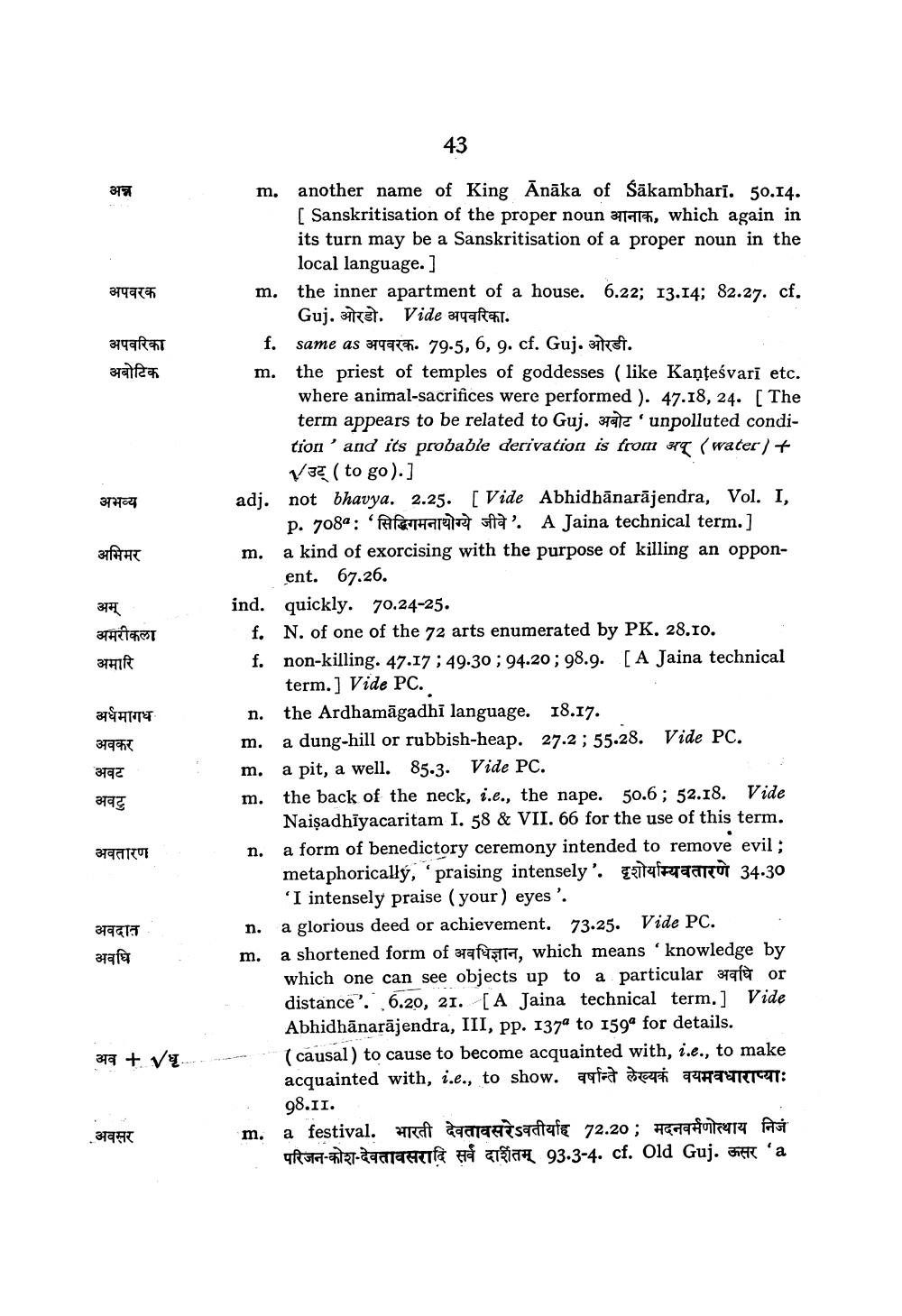________________
43
अन्न
अपवरक
f.
अपवरिका अबोटिक
m.
अभव्य
अमिमर
अम्
अमरीकला अमारि
m. another name of King Anāka of Sākambhari. 50.14.
[ Sanskritisation of the proper noun Talah, which again in its turn may be a Sanskritisation of a proper noun in the
local language.] m. the inner apartment of a house. 6.22; 13.14; 82.27. cf.
Guj. ओरडो. Vide अपवरिका. same as 3995h. 79.5, 6, 9. cf. Guj. ci. the priest of temples of goddesses (like Kanțeśvari etc. where animal-sacrifices were performed ). 47.18, 24. [ The term appears to be related to Guj. 37912 'unpolluted condition' and its probable derivation is from (water) +
Vaz ( to go).] adj. not bhavya. 2.25. [Vide Abhidhānarājendra, Vol. I,
p. 7084 : 'Rafathara sa'. A Jaina technical term.] m. a kind of exorcising with the purpose of killing an oppon
ent. 67.26. ind. quickly. 70.24-25.
f. N. of one of the 72 arts enumerated by PK. 28.10. f. non-killing. 47.17; 49.30 ; 94.20; 98.9. [A Jaina technical
term.] Vide PC. n. the Ardhamāgadhi language. 18.17. m. a dung-hill or rubbish-heap. 27.2 ; 55.28. Vide PC. m. a pit, a well. 85.3. Vide PC. m. the back of the neck, i.e., the nape. 50.6; 52.18. Vide
Naişadhīyacaritam I. 58 & VII. 66 for the use of this term. n. a form of benedictory ceremony intended to remove evil;
metaphorically, 'praising intensely'. Esitapaapū 34-30
'I intensely praise (your) eyes'. n. a glorious deed or achievement. 73.25. Vide PC. m. a shortened form of a faşits, which means 'knowledge by
which one can see objects up to a particular 3tafa or distance'., 6.20, 21. [A Jaina technical term.] Vide Abhidhānarājendra, III, pp. 1374 to 1599 for details. (causal) to cause to become acquainted with, i.e., to make acquainted with, i.e., to show. anfaat danh THTETIT:
98.11. m. a festival. Pra qaratsastaje 72.20 ; #GH T A
Rot-127-aaraatia e rat 93.3-4. cf. Old Guj. Sifre 'a
अर्धमागध अवकर अवट
अवटु
अवतारण
अवदात अवधि
349 +
अवसर




